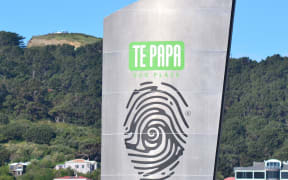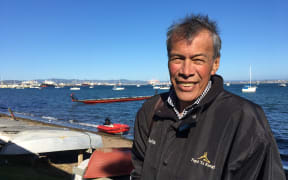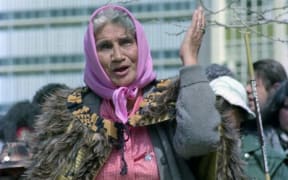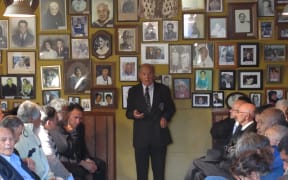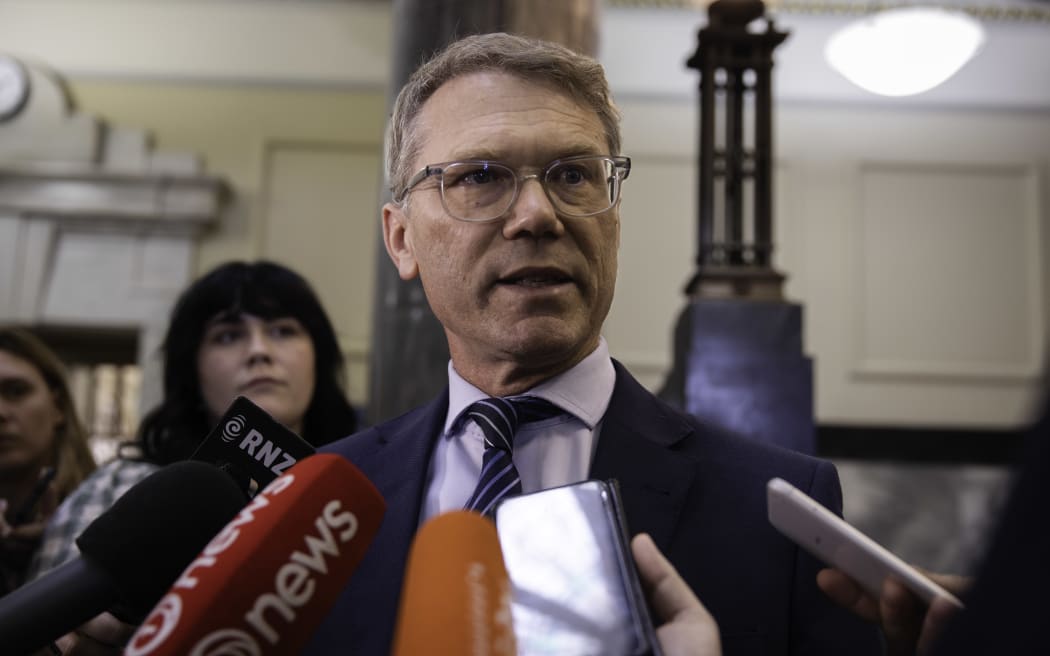
Minister of Treaty Negotiations Paul Goldsmith. Photo: RNZ / Angus Dreaver
Minister of Treaty Negotiations Paul Goldsmith says his focus in government will be building on the "good" outcomes of colonisation and fixing the bad ones.
On Saturday Waitangi Tribunal members travelled to Waitangi to hand over the completed part one, stage two Te Paparahi o Te Raki report, also known as the Northern Inquiry.
The report deals with land loss, military conflict and Treaty breaches endured by Ngāpuhi, Northland's biggest iwi, between 1840 and 1900.
Copies of the almost 2000-page document were presented to representatives of each of Ngāpuhi's seven taiwhenua, or hapū groupings, in a sometimes emotional ceremony.
Goldsmith said he was committed to settling Ngāpuhi's Treaty claim, but said he did not want to "relitigate" arguments around legal sovereignty.
"We have a constitutional monarchy in New Zealand, we have a Parliament and that has very strong representation from Māori within it and we're not planning to change our constitutional arrangements."
When it came to negotiating a date to have all historical treaty settlements settled, Goldsmith said there was not a target date sorted yet.
Previous governments have had a target date of 2020 to have all historical claims settled.
Goldsmith said previous National governments had made good progress on Treaty settlements and they hoped to restore some of that momentum.
"So we can put Northland on a good footing so that they can continue, they can do well."
This was part of a "wider effort to improve the lot for Māori and all New Zealanders", he said.
Goldsmith was asked how Māori negotating with him would trust him if they were wary of his past comments that colonisation had on balance been better for Māori.
In 2021, during a TV interview, Goldsmith said good and bad came with colonisation in the 19th century but, on balance, it had been good for Māori.
Goldsmith said he represented a government that was determined to progress on Treaty settlements.
"People can argue about history and that's appropriate, everybody will have a different point of view, I certainly have no doubt that there were many bad things that have happened as a result of colonisation and what I'm focused on is ... those bad outcomes - improving them and restoring them and that's the focus of our government. It's also about building on the good things that have happened in our country.
"So I'm looking forward to the discussion."
Asked if he had changed his view on his earlier comments he said it was "a matter for historians as to argue".
"There are certainly many bad things that have happened in the past, many good things that have happened.
"You can argue about what the balance of that is, but that's not my focus, my focus in government is upon fixing the bad outcomes of colonisation and building on the good ones.
"The Treaty settlement process was part of that but it's only part of that. Of course good quality education and dealing with law and order, having a strong economy - all those things are very important to how you restore, ensure that all New Zealanders do well, he said.
The proposed Bill on Treaty principles "will spark a significant conversation", Goldsmith said.
"We haven't moved to actually committed to actually passing it fully or having a referendum but that is something that the process will work its way through.
"And it's only natural I think when you have a new government, where there are things on the table, that there will be people who will want to make their voices clear, there will be protests, and that's appropriate but we'll just be focused on getting on with our work and be talking to as many people as we can."
